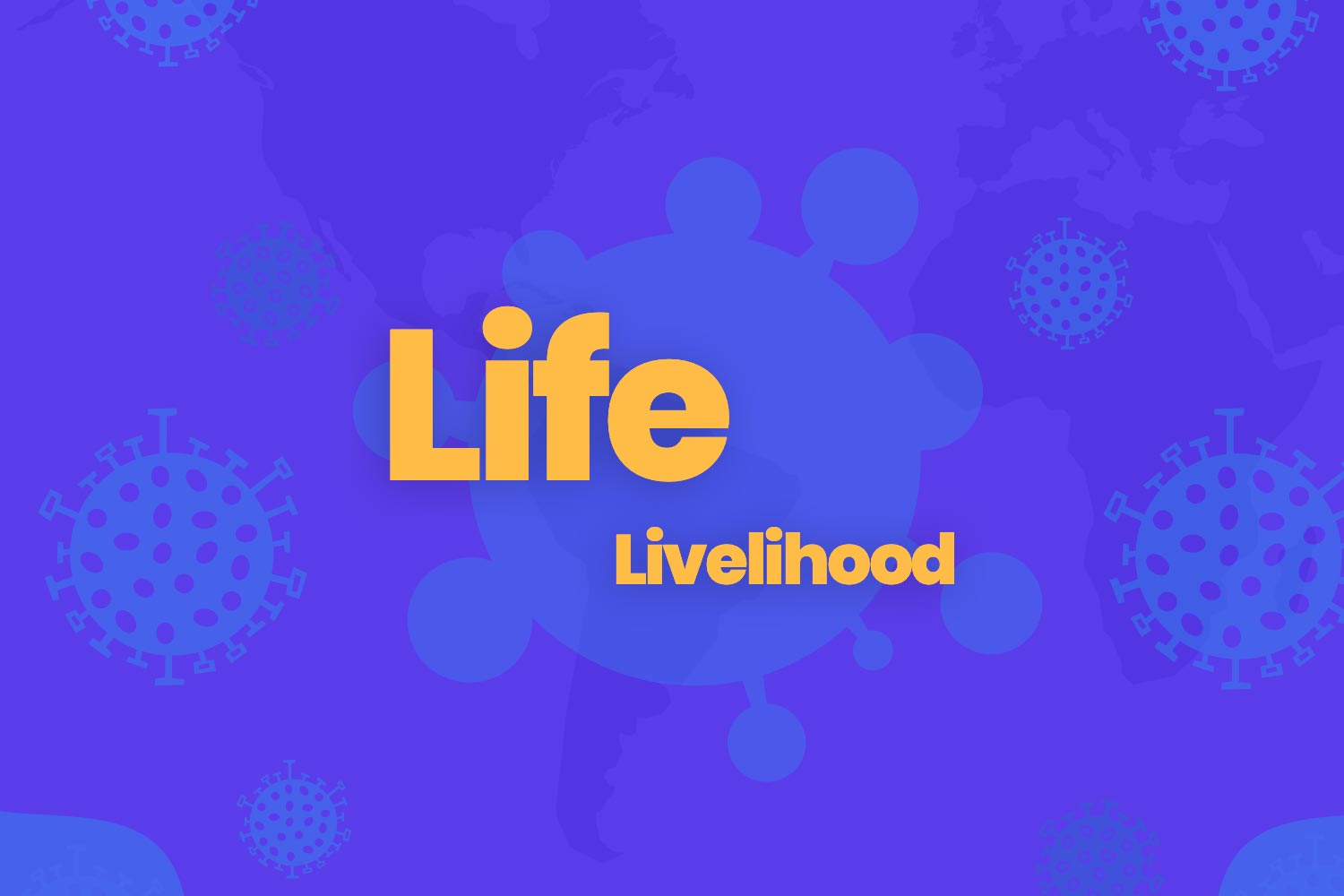Life and livelihood are the two most important components of an individual’s existence. Without life, there is no livelihood. Without livelihood, there is no life of contentment, aspiration and hope. The whole idea of living and not existing goes hand in hand with the satisfaction received as recognition for the work accomplished. The most beautiful moments in life are the ones when we express joy, which often happens when we seek it the least. If both these components (life and livelihood) are balanced, we find bliss. These two complements each other. But during testing times such as these, when every individual is fighting for survival against an enemy, one perceives that life is more important than livelihood. The responses to the COVID-19 pandemic are simply an amplification of the dynamic that drives other social and economic crises: the prioritization of life over all other values. And perhaps, that is the way out.
Each day of the lockdown is taking a giant toll of the economy. But human life is very important and cannot take the secondary pedestal. Things will never be the same as it was before the coronavirus hit. As the possibilities of lockdown and delayed staggered exits looms large over us, people are developing a psychosis about recovery from the possible economic setbacks. We’re already sick of being at home all the time, we miss our friends and families, the economy is tanking, and we feel anxious and scared about what’s ahead. But what if life never fully goes back to how it was pre-coronavirus? What if this epidemic is a turning point, and after it the world is never the same? Will that be the new normal?
One can understand the larger picture from small examples and experiences around us. Some small developments at the micro level helps us generalise the turn of events in the country as well as the world at the macro level. I will try to explain the situation and turn of events in three institutions, Kalinga Institute of Industrial Technology (KIIT), Kalinga Institute of Social Sciences (KISS) and Kalinga Institute of Medical Sciences (KIMS). The economic conditions of the all the three institutions, founded by me, has been severely affected by the coronavirus pandemic like all other business, industries, service and so on. ‘Severe’ is just an euphemism!
To give a larger picture, lakhs of people get their livelihood, directly or indirectly through KIIT, KISS and KIMS. One part of North Bhubaneswar, the capital city of Odisha, pretty much the entire area has developed as a vibrant township with the growth of KIIT and KISS. This township, spread over 25 square km area is the most vibrant part of the thriving capital because of the presence of 30,000 students at KIIT University from all over India and 55 countries abroad, 30,000 tribal children at KISS and over 10,000 staff. Employment for more than 2 lakh people is generated through KIIT and KISS at various direct, secondary and tertiary levels. All big brands of apparel, restaurant chains, jewelry stores, banks, furnishing and electronics have opened in the vicinity, and moved to this part of the town to take advantage of the captive market. Small tea shops, road side vendors and cabins flock the footpaths on KIIT road. There are hundreds of guest houses to cater to the regular inflow of parents and guardians of students at our institutions. Just to explain the scale humbly, the turnover of the allied activities related to KIIT and KISS is around Rs. 1800 Crores. 20 percent of the flights to Bhubaneswar have people coming to KIIT and KISS or indirectly related to some work under its ambit. KIIT and KISS is known for MICE (Meetings, Incentives, Conference / Conventions and Exhibitions / Events) Tourism.
Coming to the gloomy bit: 25 canteens and food courts of KIIT, all run by private individuals or contractors are shut down. They have 400-400 staff attached with them who may not get the same or any remuneration at all. Students have vacated the institutions in March and will come back only after July/August, basically after the things turn to normalcy in India. KIMS has suspended all OPD/IPD because people would try to avoid all elective medication at this point of time. One attendant with a patient would spend around Rs. 500 per day on food and logistics, that is a straight loss for them. The cab aggregators like Ola and Uber and regular auto rickshaws have suspended their service and as a result, many of them have experienced a loss of livelihood by this spread of corona virus. The banks wear a deserted look. Some delivery aggregators supplying essentials can be sparsely seen, that is about it!
I feel so sad that around 2 lakh people are bordering on a loss of livelihood now and it pains me to death that some might not even have buffer to survive after a month. 90 percent of our staff, having returned back to their native places, may not face such a grim situation because the management first and foremost thinks about the staff and students. Their spending zones are not KIIT and KISS for this period. However, I thank them for continuing their work from home and through online classes.
These times are tougher. It cannot be compared to a regular calamity or other recurring calamities that Odisha faces. Even after the massive damage Cyclone Fani last May, life returned to normal in 10 days. Businessmen did not suffer huge loses because the students were still in the campus. However, the coronavirus pandemic has brought life to a near standstill in most parts of the world. Daily routines have halted as countries take drastic measures to check the spread of COVID-19. India, home to a fifth of the world’s population, is under lockdown for more than two weeks now. Lives remain locked at homes, and politics and world matters take a back seat as nations grapple with an invisible enemy. The losses at KIIT, KISS and KIMS and its peripheral and ancillary businesses are facing can give a grim idea of the losses that the world is facing. The tragedy of the homeless, daily wage earners and migrant workers, besides those who are losing life because of COVID19 cannot be explained in words.
Often it is the duty of people who employ a vast majority of people to inspire confidence in others that businesses will bounce back, livelihoods will resume, maybe at a slower pace than earlier imagined. COVID-19 is the reality that may not go away anytime soon. It requires us to be patient, but also for the common people, it means a lot if they get some reassurance that their jobs are safe, and life will be normal. I am trying to do that bit in all my institutions. I hope other mass employers follow suit and echo this practice on a macro level.



Get Social